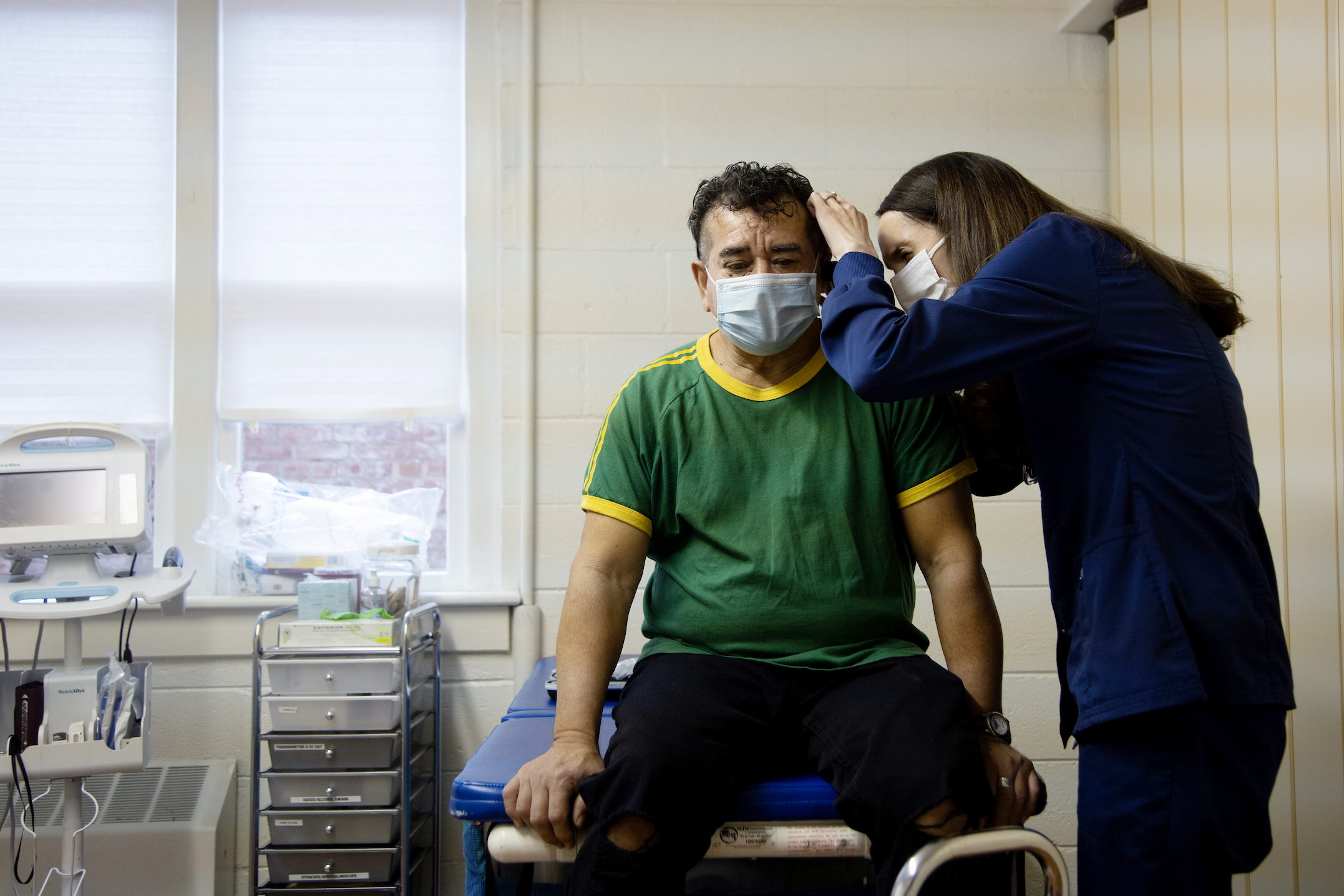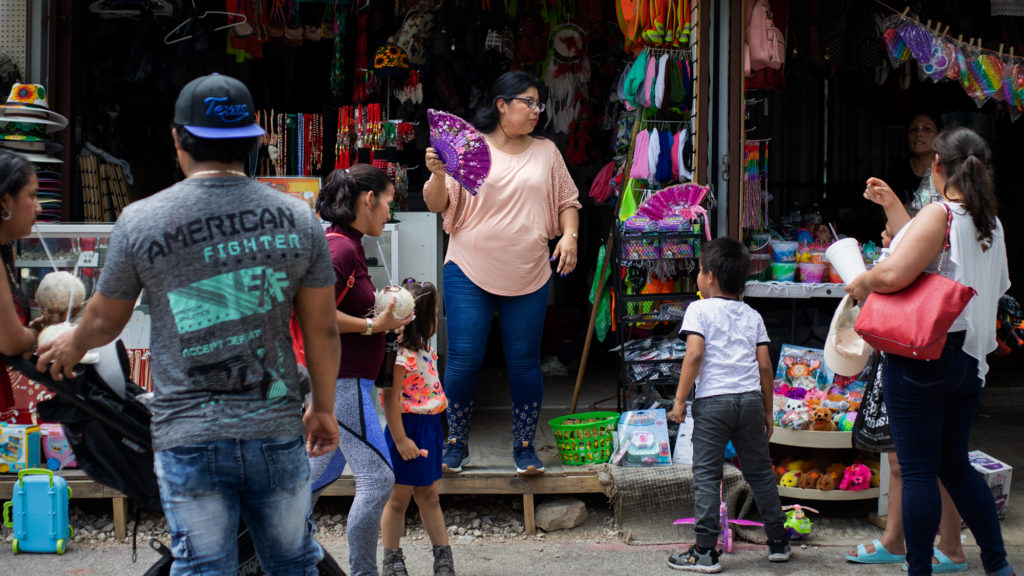There’s something unexpected in the basement of First Christian Church in Falls Church, Virginia – a medical clinic. One that provides free and low-cost care to residents in the area who are uninsured or struggling financially.
Culmore Clinic opened in 2007 to address the unmet health needs of the surrounding community, and now serves 400 patients throughout the Bailey’s Crossroads area, where more than 57 percent of residents are uninsured.
“A lot of people in the community will call and say, ‘I don’t have insurance, and I need a medical home,’ and we’ll say, ‘Come on in. We just have a few questions,’” says Culmore Clinic’s director, Barbara Weingold.
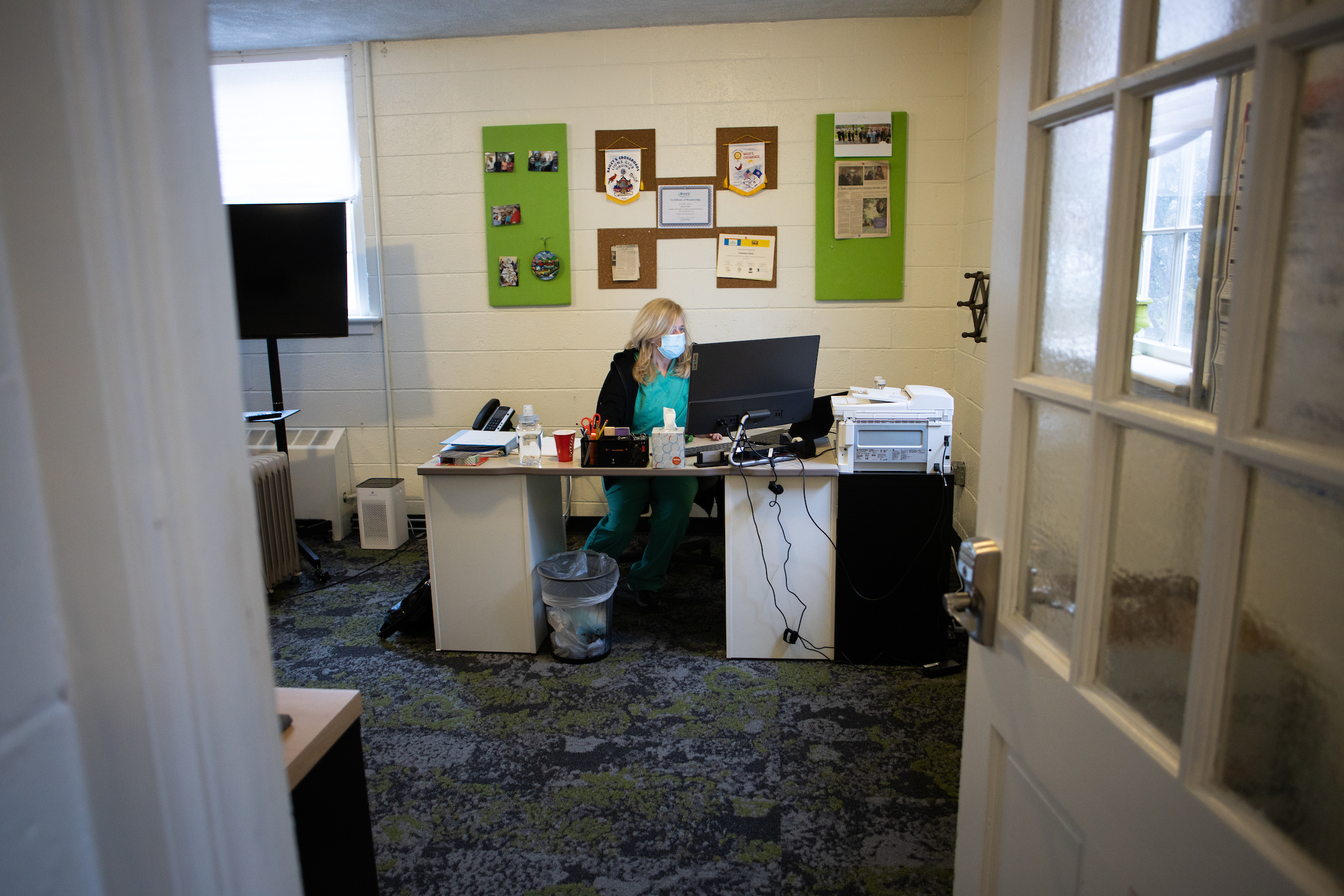
Director Barbara Weingold works in her office at Culmore Clinic, housed in the basement of First Christian Church in Falls Church, Virginia.
Weingold says Culmore’s patient population struggles with serious, ongoing medical issues. “Everything you would expect that goes with poverty — diabetes, hypertension, obesity, and multiple chronic conditions,” she says.
Many of these conditions require expensive medications, which the clinic offers its patients for a nominal $5 fee, thanks to a partnership with NOVA ScriptsCentral, a nonprofit that provides low-cost pharmaceuticals to free and affordable health clinics across northern Virginia.
“People need access to lifesaving medicines because people now have to make a hard choice between putting food on their table or choosing medication to save their lives,” says Dr. Donney John, executive director of NOVA ScriptsCentral. “We’re here to make sure that nobody has to make that choice — put food on the table, pay for shelter, or take their medicine.”
Drug prices in the U.S. remain significantly higher than anywhere else in the world, with Americans spending approximately $1200 per person annually on prescription drugs, according to the Organisation for Economic Co-operation and Development. In Switzerland, which is second in line behind the US in terms of drug costs, people still spend 30 percent less than Americans do.
Health insurance helps to alleviate the cost of medications for some consumers. But approximately 31 million people in the U.S. are uninsured and “stuck paying that full cash price,” says Dr. John. While other countries regulate drug prices to keep costs down, the U.S. does not. At the same time, drug companies in the U.S. spend more on lobbying efforts than any other industry, and are more profitable than most companies listed on the S&P 500 stock index.
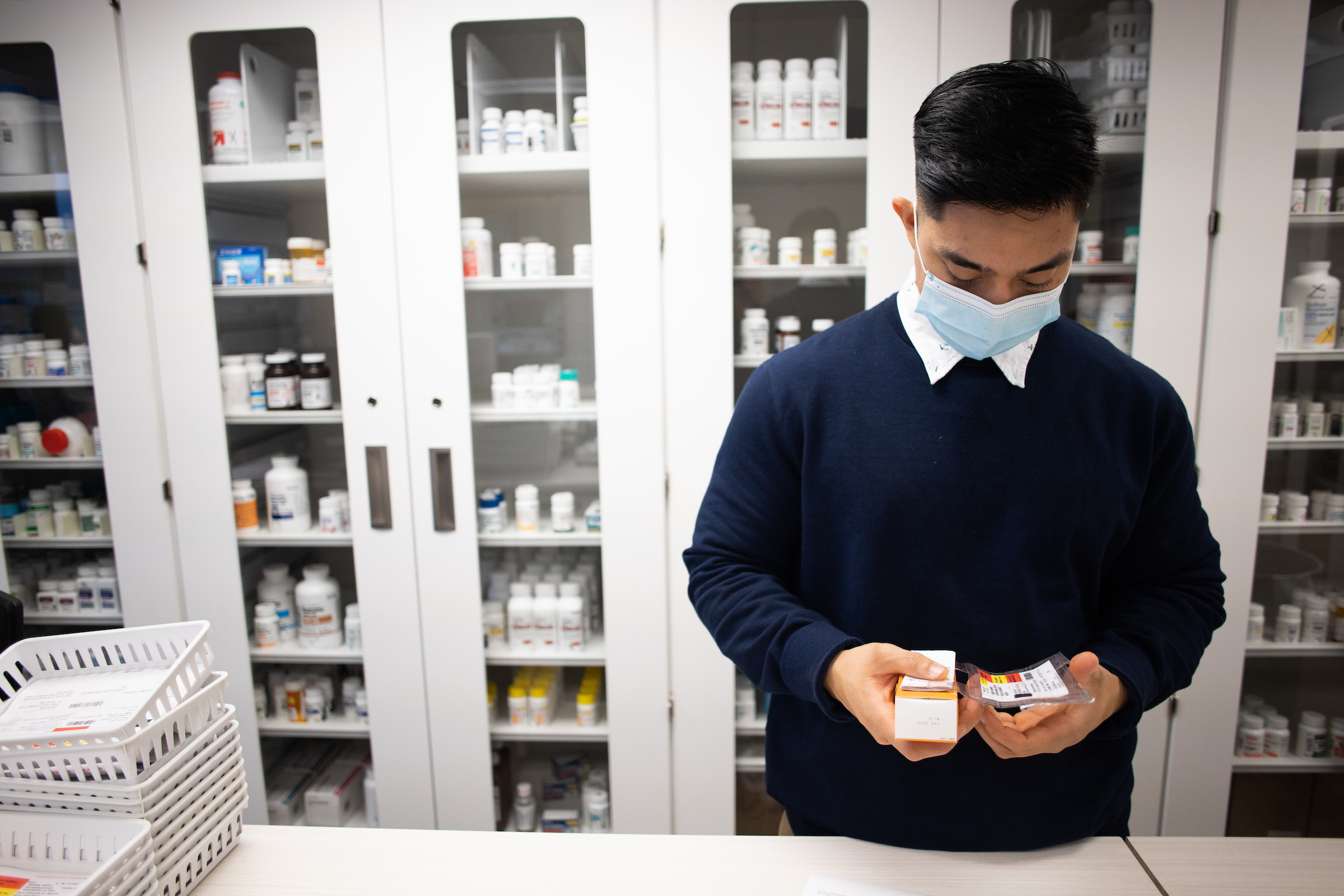
Glenn Flores fills orders for patients at the NOVA ScriptsCentral office in West Falls Church, Virginia, a nonprofit that provides low-cost pharmaceuticals to free and affordable health clinics across northern Virginia.
Founded in 2006 as a nonprofit, NOVA ScriptsCentral has distributed more than $80 million worth of pharmaceuticals to 16 clinics across Northern Virginia to help patients manage chronic health conditions like diabetes, mental illness, asthma, and seizures. Most of the patients who receive drugs from NOVA ScriptsCentral are uninsured and living on incomes at or below 300 percent of the federal poverty line.
At Culmore Clinic, in a converted classroom that is now an exam room, Rony Fletes Benitez pulls nine prescription containers out of his backpack to show his health care provider during a check-up. The medications were provided by NOVA ScriptsCentral to address a variety of Benitez’s health issues, including high cholesterol, high blood pressure, and gastritis.
Benitez, who works in construction, says his work has been reduced significantly during the pandemic, and he would be unable to afford his medications without assistance. “Whatever I earn isn’t enough to pay for the medicine,” he says.
Like Benitz, 97 percent of Culmore Clinic’s patients are immigrants to the United States who speak Spanish, Arabic, and Vietnamese. Without a donor organization like NOVA ScriptsCentral, medications would simply be out of reach for Benitez and many others in the community.
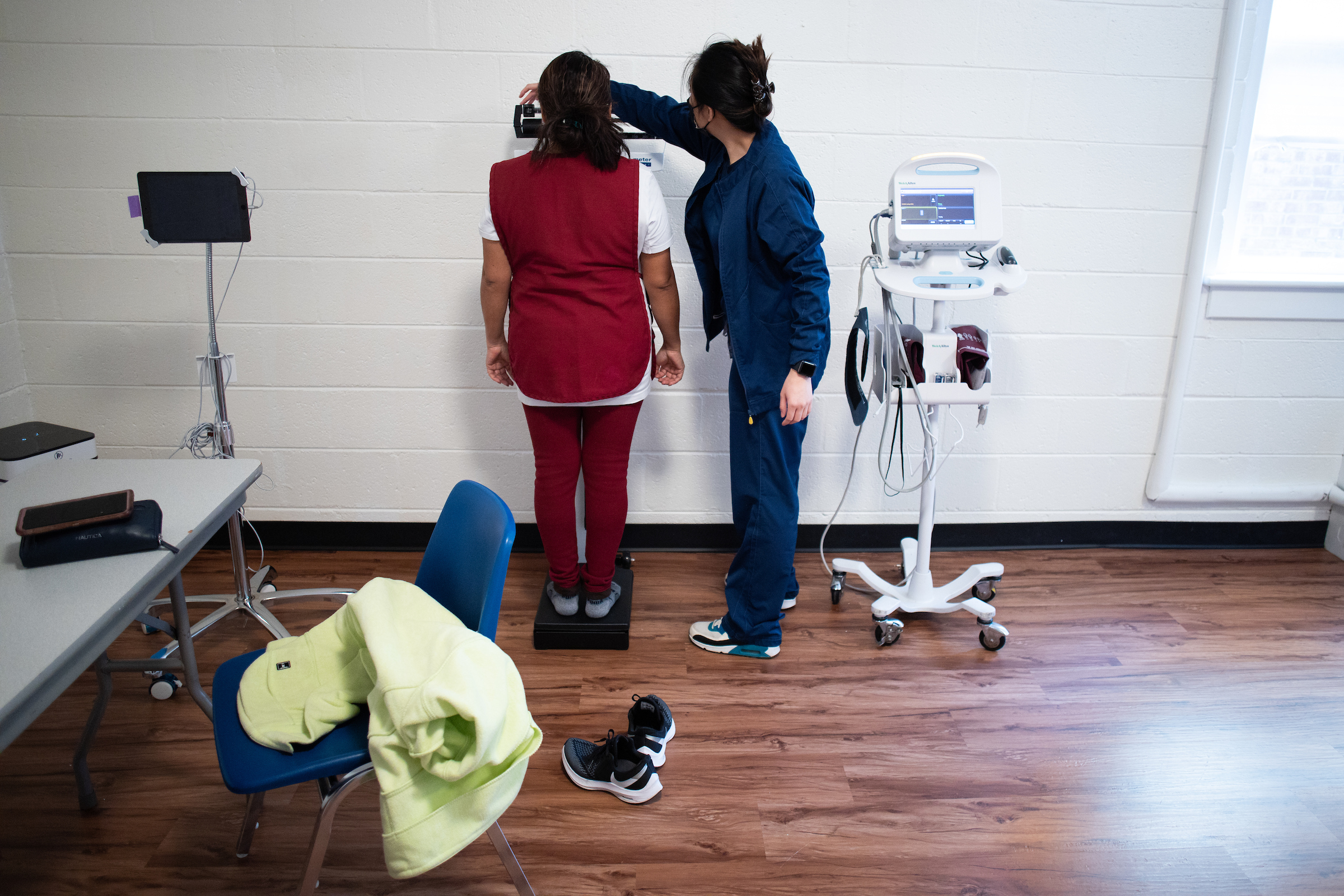
YooJin Kwon takes vitals for patient Elizabeth Yoc in an exam room at Culmore Clinic. Kwon is a registered nurse who volunteers at the clinic every Monday.
Dr. John says NOVA ScriptsCentral works with clinics, rather than the general public, to ensure that people needing medication also receive wrap-around care to ensure the medications are working, that they’re taken properly, and that patients are also learning about preventive methods to treat their conditions.
“We don’t want to give you something for diabetes when you don’t have a doctor to follow up with,” Dr. John says. “We’re open to patients at a clinic so they have a support system for ongoing management of their chronic illness.”
NOVA ScriptsCentral relies primarily on grant funding to run its operations and stock its pharmacy, and the nonprofit receives most of its medicines from healthcare charity organizations such as Direct Relief, Americares, and RxPartnership, as well as some Patient Assistance Programs sponsored by drug companies. NOVA ScriptsCentral also purchases lower-cost, generic versions of brand name drugs. Patients receiving the medications pay just $5 for a 30 to 90-day regimen of the drugs they need.
“The biggest benefit,” says Weingold, “is for some of these really high-ticket items like insulin. We have quite a few insulin-dependent diabetics who require a large amount of insulin, and those prices in the past several years have just become exorbitant. If we weren’t able to provide that for our patients, they wouldn’t get insulin. It’s been a great asset for these patients.”
NOVA ScriptsCentral also provides education to the public to help people manage their illnesses, navigate the healthcare system, and access additional resources, like food banks, dental services, and mental health care.
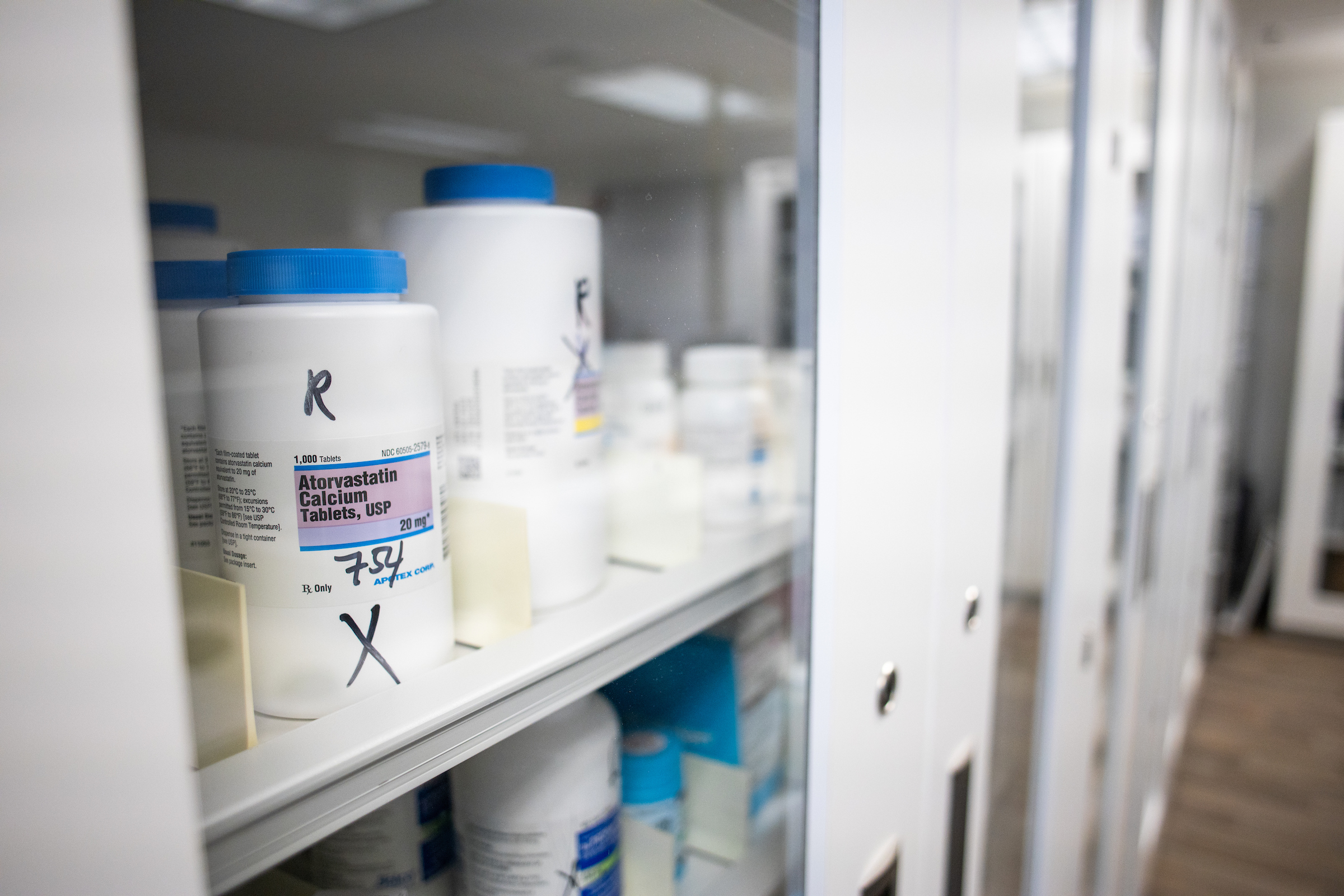
NOVA ScriptsCentral has distributed more than $80 million worth of pharmaceuticals to 16 clinics across Northern Virginia to help patients manage chronic health conditions like diabetes, mental illness, asthma, and seizures.
“Oftentimes people think that because you’re a pharmacy, you can only focus on getting people the drugs, but the drugs don’t work if people don’t take them,” says Dr. John. “We try to help people understand their illness, then understand how to utilize resources. If you don’t have a place to sleep, if you don’t have adequate access to employment — these are things that contribute to depression and the mental struggles many of our uninsured patients face.”
While he doesn’t anticipate a noticeable drop in drug prices any time soon, Dr. John says he’s encouraged by larger trends in the healthcare industry to address gaps in care and remove barriers to access.
“There’s been a big shift in terms of the buzz towards equity and health disparities and social determinants of health,” Dr. John says. “But my hope is that we actually move into the action part of it. We’ve been talking about these things for decades, but are we actually going to put the money toward addressing the problem and really get to the root causes?”

